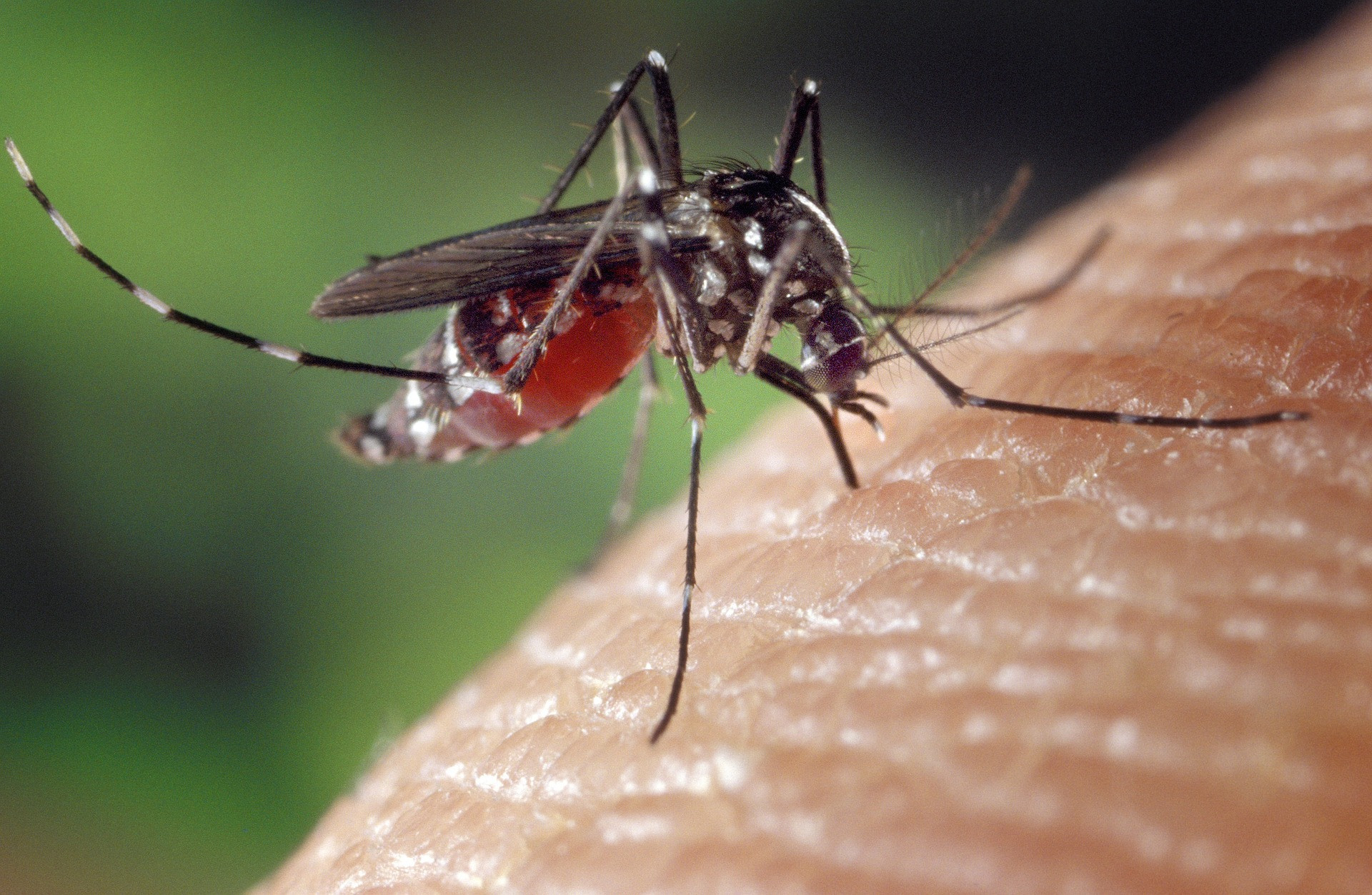ASTMH Annual Meeting 2025
blog#TropMed24 Responds to a Record-Breaking Year for Dengue Infections
By: Matthew Davis, Burness

Topics covered include the search for dengue drugs, a “cohesive narrative” of dengue’s surging caseload in the Americas, evidence of rapid reinfections, climate impacts and Africa risks
More than 40 years ago, Scott B. Halstead, MD, FASTHM, wrote in the Bulletin of the World Health Organization that “of the great neglected diseases of mankind, perhaps no infection commands so vast a domain as do the dengue viruses.” Halstead served as ASTMH president in 1991 and is widely regarded as one of the world’s leading authorities on the mosquito-borne disease. He now lives in a world where dengue’s vast domain is larger than ever, and dengue appears poised to conquer even more territory.
In 2024, infections globally hit record levels. More than 13 million cases have been documented, along with over 8,500 deaths, far more than in 2023, which was also a particularly bad year for dengue. Brazil has been at the epicenter of a dengue storm that also has affected countries in Asia and West Africa. In the United States, Puerto Rico has borne the brunt from the 2024 outbreaks. On the U.S. mainland, a small number of locally acquired cases were reported in Florida (49) and California (11), and in recent years, local transmission also has been reported in Texas and Arizona.
Anyone who wants to explore contemporary dengue challenges should be attending the 2024 Annual Meeting of the American Society of Tropical Medicine and Hygiene, November 13-17, in New Orleans. The following is just a sampling of how #TropMed24 will provide new insights relevant to this year’s alarming rise in dengue infections. (If you prefer, you can read the below while listening to the Los Angeles-based Cambodian-American rock band Dengue Fever.)
Dengue Everywhere, No Approved Treatments Anywhere: Most people with dengue have relatively mild symptoms, though others experience terrible joint pain (earning dengue the nickname breakbone fever). In rare cases, dengue can cause severe, life-threatening complications. But there are no drugs available to treat dengue of any type. A symposium Friday will take a deep dive into the current state of dengue treatments, including an industry view of dengue drug development and presentations from members of a new global alliance working to accelerate discovery and development of new therapies.
Dengue in the Americas: A symposium Saturday is bringing together experts from Brazil, Peru, the Pan American Health Organization (PAHO) and the U.S. Centers for Disease Control and Prevention (CDC) to present the first cohesive narrative of the stunning 2024 rise of dengue in the Americas. The session will include reports of dengue “showing up at unusual places and unusual times” and new assessments of the evolving genetic diversity of dengue viruses in the Americas.
When Lightning Strikes Twice: There are four different “serotypes of dengue virus,” helpfully known as serotypes 1, 2, 3 and 4. Infection with one of the serotypes is believed to provide at least short-term cross protection (six months to a year or more) from infection with another serotype. But one of dengue’s confounding issues is there are instances in which waning cross protection conferred by one serotype appears to increase the risk of severe disease from a different serotype. Saturday, investigators from the Sustainable Science Institute in Managua, Nicaragua, bring new evidence into this fraught immunological territory with a study of 10 patients who suffered reinfections in a relatively short time frame, some only 31 days apart. They said their findings “demonstrate the need to re-evaluate protective immunity” from dengue infections.
Dengue as a Moving Target: A Brazilian researcher from the Faculty of Medicine of São José do Rio Preto will present results Thursday from a study that involved a “full genome deep sequence” of 1,000 dengue virus samples gathered from 2019 to 2024 from patients in the São Paulo region. The analysis shows how much circulating serotypes can change from year to year. For example, it reveals that in the São Paulo region in 2021, dengue 2 was replaced by dengue 1 as the prevalent serotype, and this year, there was an unexpected appearance of dengue 3 “after a 15-year absence.”
Dengue Hotspots in a Warmer World — and Cooling Effects of Wolbachia: Researchers from Stanford and Harvard Universities will present findings Saturday from a new study that is trying to answer one of the biggest questions in the world about dengue: just how much is climate change contributing to the current surge of dengue infections, and how will it affect risks going forward?
Meanwhile, also on Saturday, researchers from the World Mosquito Program will present new findings from a city in Brazil that has been the site of a massive release of mosquitoes carrying Wolbachia, a naturally occurring bacteria that can block dengue transmission. Their study is investigating whether the cordon of Wolbachia-infected mosquitoes provided protection this year as dengue swept across Brazil.
Africa’s New Aedes Aegypti Problem: Aedes aegypti is the name of the mosquito species that carries dengue. Researchers from the Aedes 1200 genomes project are presenting insights Friday from mosquitoes collected from 74 locations around the world, and it’s particularly worrisome for sub-Saharan Africa. They note that the African continent is home to an indigenous Aedes aegypti subspecies that lives mainly in forests and lacks much of an appetite for humans. But they report that dengue transmission in Africa is now occurring via Aedes aegypti mosquitoes that carry genetic signatures associated with their urban-dwelling, human-preferring cousins that are sending dengue to record levels in other parts of the world.
Related Posts
By: Matthew Davis, Burness